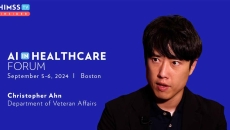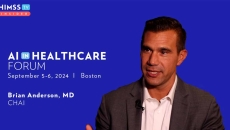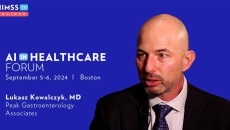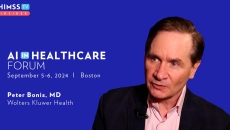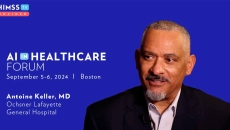Artificial Intelligence
Denial rates have steadily increased, with providers seeing rejection rates as high as 10% to 15%.
CIOs and other IT leaders this year are expected to explore practical applications for AI, such as use in administrative functions, for which AI is ideally suited, says Greg Miller, vice president of business development at Carta Healthcare.
Resistant infections result in more than 35,000 deaths each year and cost the health system billions.
Christopher Ahn, biomedical engineer supervisor at the U.S. Department of Veteran Affairs in Dayton, Ohio, developed a chatbot called the Healthcare Technology Large language Model that allows clinicians to query the chatbot rather than carrying around service manuals or scrolling through a pdf, Ahn says.
The expectation is AI will be widespread in revenue cycles within five years.
CHAI has formed five working groups for best practices to build out an assurance standards guide. Later this fall it will announce a model card to align health systems, payers and IT companies, says Dr. Brian Anderson, cofounder and CEO.
The question becomes not whether AI can predict disease, but what physicians should tell patients, ethically, such as their chances of getting cancer, says Dr. Lukasz Kowalczyk, a physician at Colorado-based Peak Gastroenterology Associates.
From an enterprise level there is no shortage of AI opportunities around the economic value of the application, says Dr. Peter Bonis, chief medical officer at Wolters Kluwer Health.
Fifteen percent of providers and 25% of payers report having an established AI strategy in 2024.
There's a hesitancy to trust generative AI, but, at the same time, clinicians don't want to miss a diagnosis, says Dr. Antoine Keller, cardiothoracic surgeon at Ochsner Lafayette Hospital.



